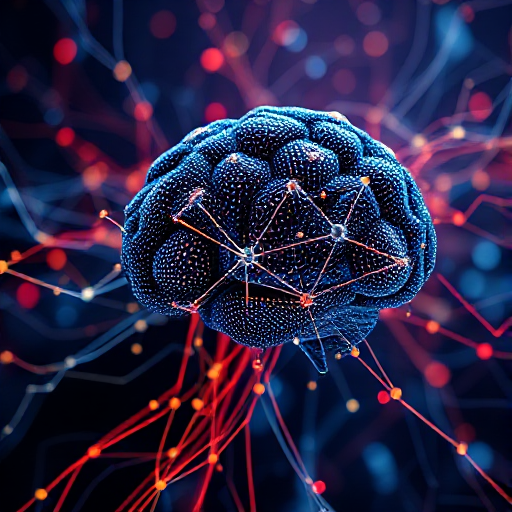
Neural networks have become a fundamental component of artificial intelligence (AI) and machine learning (ML) systems, driving advancements in fields such as natural language processing, computer vision, and autonomous vehicles. Specializing in neural networks can open doors to cutting-edge technology and a wide range of career opportunities. This guide will walk you through the steps, skills, and resources you need to become an expert in neural networks.
1. Understand the Basics of Neural Networks
Before diving into specialization, it is essential to grasp the foundational concepts of neural networks. At their core, neural networks are computational models inspired by the way the human brain processes information. They consist of layers of interconnected nodes (also known as neurons), which process input data and generate output. Each connection between neurons has a weight, which adjusts as the network learns from data.
Key Concepts to Learn:
- Neurons: Basic computational units that take in inputs, apply weights, and use activation functions to produce outputs.
- Layers: Neural networks are typically organized into layers, including input, hidden, and output layers.
- Activation Functions: Functions like sigmoid, ReLU, and tanh help determine the output of a neuron.
- Training and Backpropagation: Neural networks learn by adjusting weights through a process called backpropagation, where errors are propagated back through the network to update weights.
- Loss Functions: These functions measure the difference between the predicted output and the actual target, helping the model optimize its performance.
2. Master the Fundamentals of Machine Learning
Neural networks are a subset of machine learning, so it is crucial to have a solid understanding of machine learning principles. Machine learning focuses on teaching computers to learn from data without being explicitly programmed. Neural networks, specifically deep learning, are powerful tools within the machine learning framework.
Key Areas to Cover:
- Supervised Learning: Understanding the concept of labeled data and using algorithms to predict outcomes.
- Unsupervised Learning: Techniques for learning patterns from unlabeled data, such as clustering.
- Reinforcement Learning: Learning by interacting with an environment to maximize rewards, often used in robotics and game AI.
- Optimization Algorithms: Learning algorithms such as gradient descent, which help improve neural network performance.
3. Learn Programming Languages and Libraries
To specialize in neural networks, you need proficiency in programming languages and libraries commonly used in AI and machine learning. The two most widely used languages are Python and R, with Python being the go-to language due to its extensive libraries and community support.
Key Libraries and Tools to Master:
- TensorFlow: A powerful open-source library for building and training neural networks, developed by Google.
- Keras: A high-level API built on top of TensorFlow that simplifies the process of designing neural networks.
- PyTorch: A deep learning library favored for its flexibility and dynamic computation graph, popular in research.
- scikit-learn: A general-purpose machine learning library in Python that provides easy-to-use tools for data analysis and modeling.
- NumPy and Pandas: For numerical computation and data manipulation, essential for handling datasets efficiently.
4. Study Deep Learning and Advanced Neural Network Architectures
Once you understand the basics, the next step is to delve into deep learning—a specialized area within neural networks that deals with networks containing many layers, known as deep neural networks (DNNs). These architectures enable neural networks to learn highly complex patterns and are behind many modern AI applications.
Key Topics in Deep Learning:
- Convolutional Neural Networks (CNNs): Specialized for image processing and pattern recognition. CNNs are widely used in computer vision tasks like image classification and object detection.
- Recurrent Neural Networks (RNNs): Useful for sequential data, such as time series analysis and natural language processing (NLP). Long Short-Term Memory (LSTM) and Gated Recurrent Units (GRUs) are advanced forms of RNNs.
- Generative Adversarial Networks (GANs): A framework where two networks—one generating data and the other evaluating it—are trained simultaneously. GANs are widely used for generating realistic images, videos, and other media.
- Autoencoders: Used for unsupervised learning tasks like dimensionality reduction and anomaly detection.
5. Gain Hands-On Experience with Projects
Theoretical knowledge is essential, but applying your skills to real-world problems is crucial for mastering neural networks. Working on projects helps you understand how to design, implement, and fine-tune neural networks for specific applications.
Suggested Projects:
- Image Classification with CNNs: Use a dataset like CIFAR-10 or MNIST to classify images based on their content.
- Sentiment Analysis with RNNs: Build an RNN to classify text as positive, negative, or neutral based on sentiment.
- Chatbot Development: Use NLP techniques, such as LSTMs or transformers, to build a conversational agent.
- Image Generation with GANs: Create a GAN that generates new images from a dataset (e.g., faces, landscapes).
- Time Series Forecasting: Use RNNs or LSTMs to predict stock prices or weather patterns.
6. Stay Current with Research and Innovations
The field of neural networks is rapidly evolving, with new architectures, techniques, and applications emerging regularly. To specialize in this area, it is important to stay updated with the latest research papers, advancements, and trends.
Recommended Sources:
- arXiv.org: A preprint server for research papers in AI, machine learning, and neural networks.
- AI and ML Conferences: Attend conferences such as NeurIPS, ICML, and CVPR to learn from experts and network with professionals in the field.
- Online Communities and Forums: Join platforms like GitHub, Stack Overflow, and Reddit’s machine learning community to collaborate and ask questions.
7. Pursue Advanced Education and Certifications
While self-study and hands-on experience are valuable, pursuing formal education can further enhance your expertise. Consider enrolling in advanced courses or degree programs that focus on neural networks and deep learning.
Degree Programs:
- Master’s or PhD in Computer Science or AI: Many universities offer advanced programs that specialize in AI, machine learning, and neural networks.
Online Certifications:
- Coursera: Offers courses from institutions like Stanford and deeplearning.ai that focus on deep learning and neural networks.
- edX: Offers online programs and professional certifications in AI and machine learning.
- Udacity: Offers a deep learning nanodegree that covers neural networks and other AI topics in-depth.
8. Build a Portfolio and Network
As you gain expertise, it is important to showcase your skills to potential employers or collaborators. Build a portfolio of your work, including projects, research papers, and open-source contributions. Additionally, networking with professionals in the field can help you find job opportunities and stay informed about industry trends.
Ways to Build Your Portfolio:
- GitHub: Share your code and projects on GitHub to demonstrate your ability to develop neural network models.
- Blogging: Write tutorials, explain complex concepts, and share your experiences in neural networks on platforms like Medium.
- Conferences and Meetups: Present your work at AI and ML conferences or local meetups to build your reputation in the field.
9. Explore Specialization Areas
Once you have mastered the core concepts of neural networks, you can further specialize in specific areas depending on your interests. Some popular areas of specialization within neural networks include:
- Natural Language Processing (NLP): Specializing in how machines understand and generate human language.
- Computer Vision: Focusing on teaching computers to interpret visual data from images and videos.
- Reinforcement Learning: Applying neural networks to decision-making problems where an agent learns by interacting with an environment.
Specializing in neural networks requires a combination of theoretical understanding, hands-on experience, and continuous learning. By mastering the core concepts of machine learning, diving deep into advanced neural network architectures, working on real-world projects, and staying updated with research, you can become an expert in this rapidly evolving field. Whether you’re interested in AI research, developing cutting-edge applications, or solving complex real-world problems, neural networks provide a vast array of exciting opportunities.






